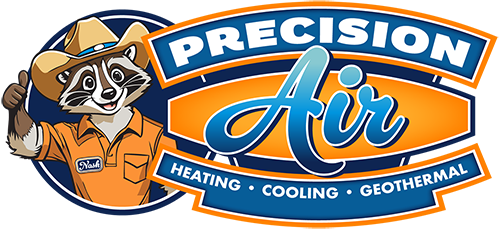Are you using a gas-powered furnace in your home for your heating needs? This wouldn’t come as a surprise to use. After all, it is the most popular heating system found in homes throughout our area and beyond. They’re powerful, cost-effective, and today’s models are even more efficient than systems from just a decade ago.
Gas furnaces are not inherently dangerous. However, any appliance that uses natural gas can become dangerous, if not properly installed or cared for. The main concern when it
comes to gas furnaces is the heat exchangers of these systems.
This is one problem that disrupts not only the heating efforts in many households each year, but can also be a health and safety hazard. A cracked or damaged heat exchanger is definitely one of those problems you should never ignore, and if you suspect you have one, it’s time to turn your heater off and give us a call!
Read on to learn more about this potential issue.
“First, What Is a Heat Exchanger?”
Great question! This is the component responsible for applying heat to the air that your blower fan sends through the ventilation system and then into your home. It looks like a clam-shell shaped metal chamber and there can be a number of them arranged in rows in the furnace. This is where the hot combustion gas from the burners collects.
There’s one gas in particular—carbon monoxide (CO)—that can be harmful if enough of it enters your indoor air. But the heat exchanger stops this from occurring. You see, the gas builds up inside the heat exchanger and raises the temperature of the metal casing, allowing the heat exchangers to heat the air without that gas coming into contact with the air.
What Causes Heat Exchanger Damage
Over the years, the heat exchangers of your furnace go through a lot of strain. Every time they heat up, the metal expands. Over time, this constant expansion and contraction weakens the metal, leading to eventual corrosion.
This is, as you might imagine, a bigger risk in an aging furnace or a furnace that isn’t well vented. If your furnace is over 10 years old or if you’ve never had it inspected during a maintenance appointment (or even at the time you moved into your home) then you want to be very aware of this potential issue.
Corrosion weakens the metal of the heat exchangers and wear and tear over the years takes advantage of that corrosion—and then small fissures start appearing along the heat exchangers.
Why Is This So Dangerous?
As we mentioned above, if heat exchangers are damaged then this can allow CO into your living space—especially if the furnace isn’t vented well. CO, at its best, can make people ill. It actually leads to hundreds of fatalities each year, so it’s nothing to take lightly.
The best way to protect your household is by not only making sure your furnace is well-maintained each year, but also by having carbon monoxide detectors installed. If one of them or multiple CO detectors goes off, it’s best to call your utility company’s emergency line. Oh and, turn off your furnace!
Contact Precision Air, Inc today for your home HVAC services in Nashville, TN. Comfort is a must, call the experts you trust.

